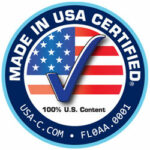
Do you think you have the right to know what country your food comes from, whether it’s a tomato, a steak, a chicken breast or an orange?
Most people think they do. The consumer’s right to know is the idea behind what’s known as COOL, the nation’s Country of Origin Labeling Law that took effect in 2009 following years of political infighting in the food industry.
Now that consumer-friendly U.S. law is in jeopardy because of other countries’ actions.
Labeling that includes a product’s country of origin is mandatory at supermarkets for beef, lamb, pork, chicken, goat, fish, fresh and frozen fruits and vegetables, peanuts, pecans, macadamia nuts and ginseng, according to the U.S. Department of Agriculture.
But trade officials in Canada, Mexico and a host of other countries say COOL isn’t so cool, and they want it abolished. In 2009 they filed a formal protest with the World Trade Organization, headquartered in Geneva, Switzerland.
The countries alleged that COOL is a “barrier to trade.”
In late May, a WTO “dispute panel” issued a preliminary and supposedly confidential finding against the United States, but word got out. A final ruling is due in September.
Consumer service or not?
The WTO panel said that the mandatory COOL requirements do not meet the United States’ stated objective that the labeling law informs and helps U.S. consumers make purchasing decisions regarding the origin of meat, produce and other products. Thus, if WTO rules against the U.S., it appears COOL could exist on a voluntary basis.
Canada and Mexico’s complaints focused on beef and pork, saying that COOL favored U.S. products.
They said labeling products such as ground beef, which can contain beef from Mexico, Canada and the U.S. in the same package, didn’t help consumers.
Julie Reiser, chairman and founder of Made in U.S.A. Certified in Boca Raton, called the preliminary ruling “very scary stuff” which threatens our country’s sovereignty. The implications are huge if the WTO overturns COOL, she said.
“It would show that the WTO has the power to usurp our U.S. laws that protect our citizens,” Reiser said.
Reiser said an end to mandatory COOL would affect trade, give the food industry even less regulation than it already has and be a health and safety threat.
“We have the right as consumers to know where the food we eat comes from. We, along with many, are in an outrage about this,” Reiser said. She urges people to write their Congress member.
Clothing and everything else sold in the United States is labeled with its country of origin. Why should food be any different?
Food safety an issue
Eva Webb, assistant field services director, Florida Farm Bureau Federation, said there are food safety and security issues as well.
“We need to know if something is grown in a region that might not have the same stringent food safety practices,” Webb said.
“Some problems in the past have come from the wash water used on fresh produce. If someone were to eat produce with damaged skins or not properly washed, they might become quite ill or worse.
“American farmers must have hand-washing stations, with employees required to cleanse their hands after restroom breaks. Water used to wash produce is potable water and meets or exceeds drinking water standards. We know that this has not always been the case in some developing countries,” Webb said.
Mike Aerts, director of marketing and membership at the Florida Fruit & Vegetable Association in Maitland, said at this point it appears any WTO decision against COOL would apply to all products covered by it, not just meats.
Unfair discrimination?
Aerts said the complainants asserted that COOL created “unfair discrimination” against foreign produced commodities, and is causing the market to treat foreign commodities less favorably than U.S. commodities. They also allege it mandates requirements so onerous that they affected the ability of exporters to compete fairly in the U.S. market.
The outlook isn’t good, Aerts said, as WTO panels rarely change their interim conclusions in final rulings.
If the panel rules against COOL, the United States will have 60 days to decide whether to appeal, Aerts said.
The U.S. could face trade sanctions if it doesn’t comply with a WTO ruling.
“Looks like in the world of international diplomacy, it’s more important to massage egos than to risk hurt feelings,” Aerts said.
Insiders say the U.S. Trade Representative’s Office has indicated it will appeal any adverse WTO ruling.
Florida law will still help
No matter what the outcome, Florida consumers will still have access to some information because of Florida’s fresh produce-only country-of-origin labeling law, which took effect in 1979. There’s also Fresh from Florida, a marketing campaign run by the Florida Department of Agriculture and Consumer Services. Both initiatives pre-date COOL.
While Florida’s law didn’t seem to unfairly burden anyone and wasn’t particularly costly, when a national version was proposed, some powerful players in the food industry fought it for years. That included such groups as the Food Marketing Institute, the American Frozen Food Institute and the Grocery Manufacturers of America.
It seems ironic that other countries could put an end to something so pro-American, but it’s a possibility.
Already, some U.S. groups that never wanted COOL in the first place are applauding the WTO’s preliminary stance.
National Cattlemen’s Beef Association President Bill Donald said in a recent statement that COOL was a bad idea from the beginning and said it reduced the value of feeder cattle in the U.S., Mexico and Canada and hurt the U.S. industry.
For now, food producers must comply with COOL or face fines of up to $1,000 per violation.
~ susan_salisbury@pbpost.com

I have reviewed your Law Firm Blog. You gave me lots of important law information. I will apply this topic in my firm. I have enjoyed reading it.
Thanks
Watson
“Chad D Wuertz”